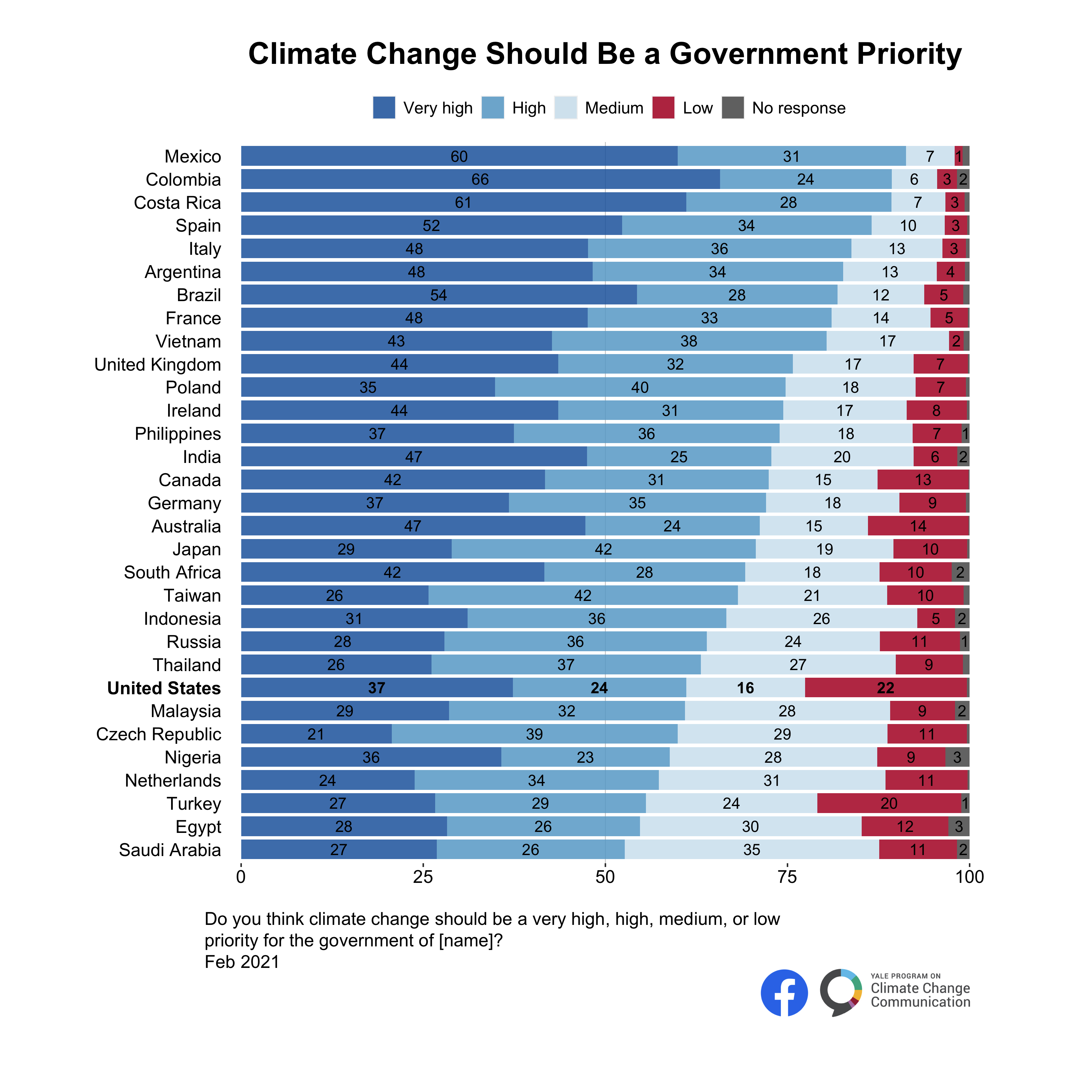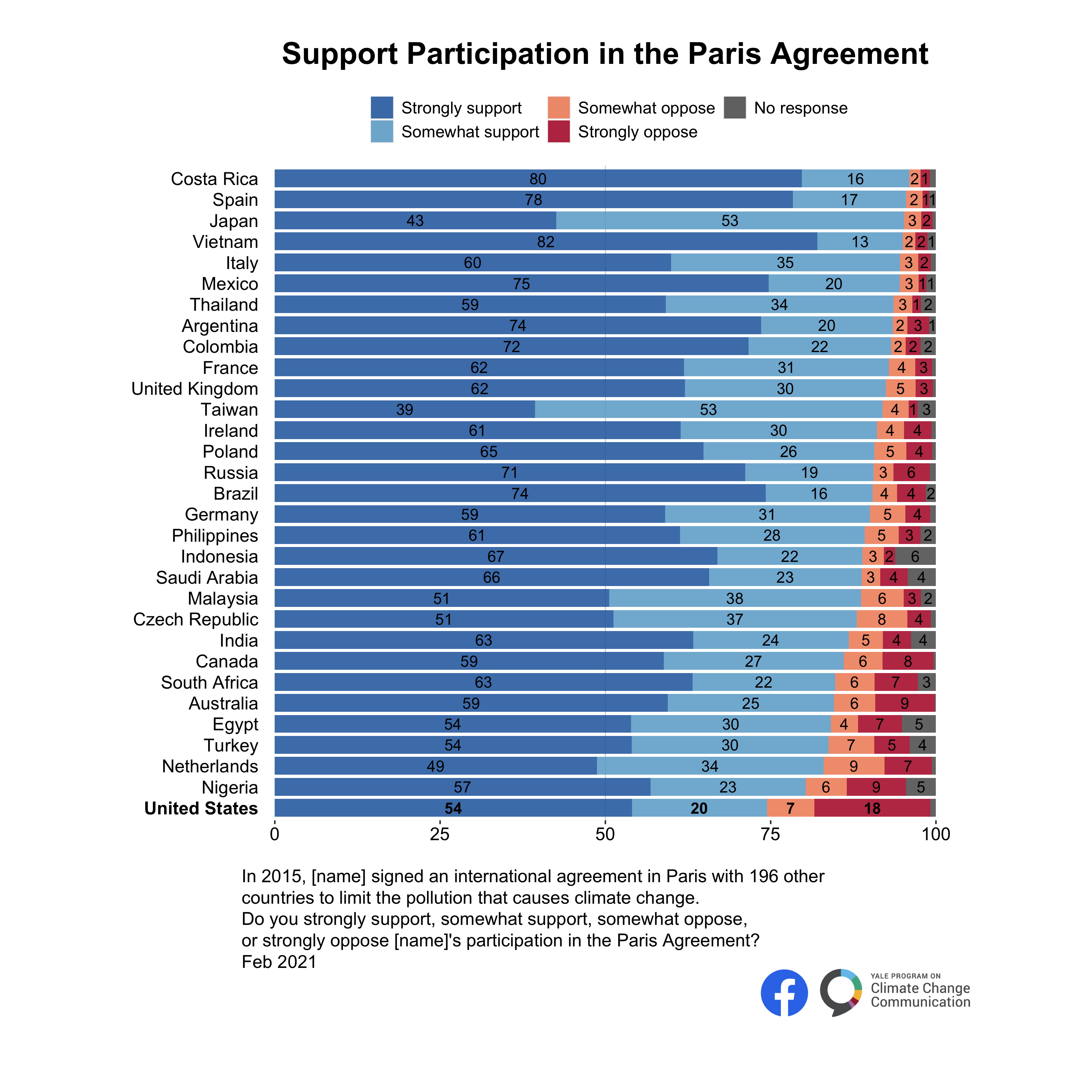Report · Jun 28, 2021
International Public Opinion on Climate Change
By Anthony Leiserowitz, Jennifer Carman, Nicole Buttermore, Xinran Wang, Seth Rosenthal, Jennifer Marlon and Kelsey Mulcahy
Filed under: Audiences, Beliefs & Attitudes, Behaviors & Actions, Policy & Politics and Climate Impacts
3. Support for Government Action to Address Climate Change
3.1. Most respondents say climate change should be a high priority for their government.
As we first reported in April 2021, a majority of respondents in every surveyed country and territory say climate change should be a “high” or “very high” priority for their own governments, led by Mexico (91%), Colombia (89%), and Costa Rica (89%), to a low of 53% in Saudi Arabia. In the United States, 61% of respondents say climate change should be a “high” or “very high” priority, while 22% say it should be a “low” priority.
3.2. There is overwhelming international support for the Paris Climate Agreement.
In December 2015, officials from 197 countries (nearly every country in the world) met in Paris at the United Nations Climate Change Conference and negotiated a global agreement to limit global warming. On Earth Day, April 2016, the United States and 174 other countries signed the agreement, with all of the other countries following suit.
Within every country or territory surveyed, there is overwhelming support for participation in the Paris Climate Agreement.Because Taiwan is not a signatory to the Paris Climate Agreement, but has committed to its goals, respondents in Taiwan were asked to what degree they support or oppose “Taiwan’s commitment to the goals set in the Paris agreement.” Support for the Paris agreement is highest in Costa Rica (96%), followed closely by Spain, Japan, Vietnam, Italy, and Mexico (all 95%). Support is lowest in the United States, although a large majority of respondents (74%) still say they “strongly” or “somewhat” support participation in the agreement.
3.3. Respondents want their own governments to do more to address climate change.
A majority of respondents in almost every surveyed country and territory (29 out of 31) say they want their own government to do “much more” or “more” to address climate change, led by Italy, Colombia, and Spain (all 89%). Fewer than half of respondents in Saudi Arabia (42%) and Egypt (47%) say they want their own government to do more. Relatively small minorities in every country or territory say their own government should do less. In the United States, about two-thirds of respondents (65%) say the U.S. government should do more, while 22% say it should do less.


